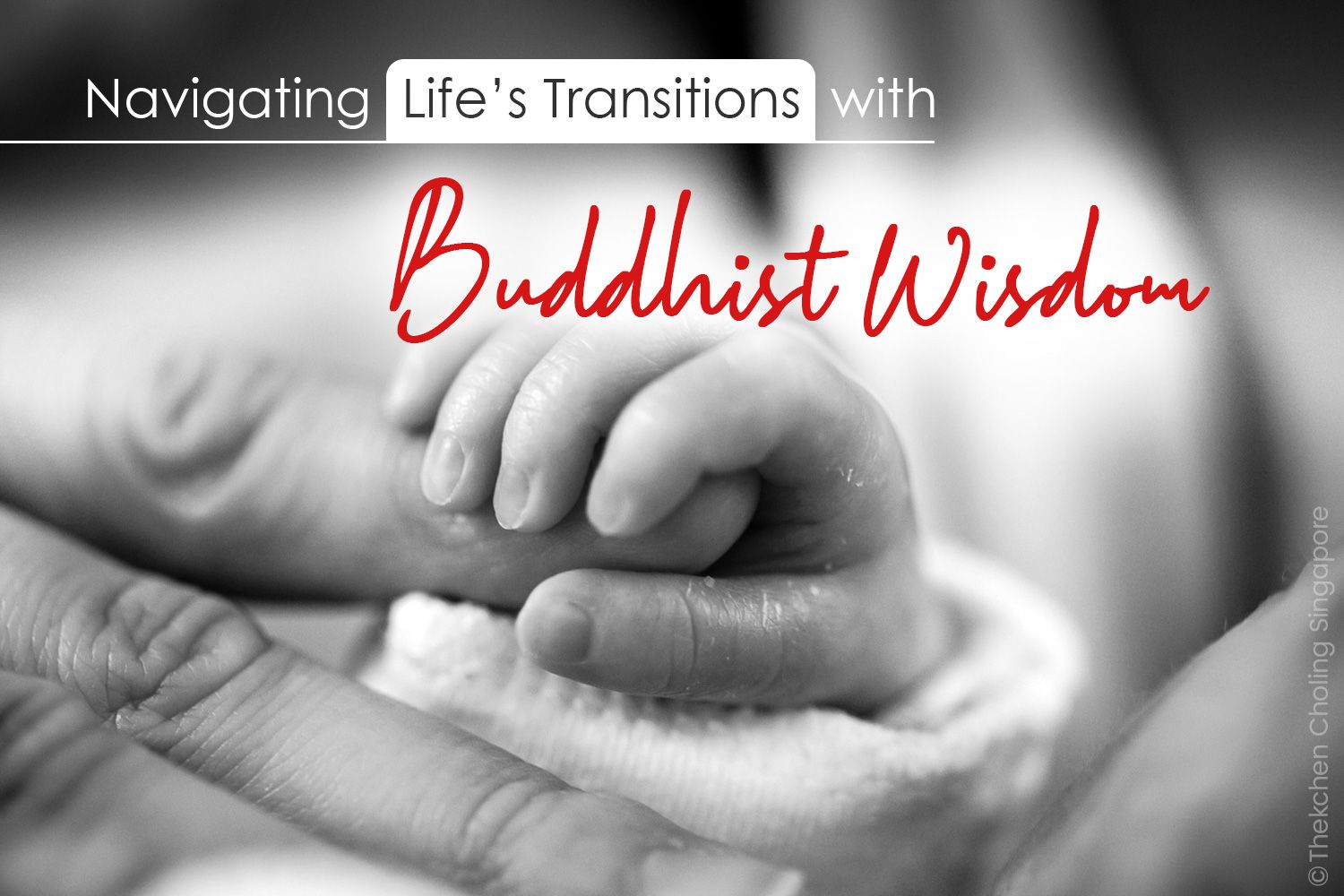Navigating Life’s Transitions with Buddhist Wisdom

Life changes—sometimes gradually, sometimes all at once.
A relationship ends, a loved one passes on, or a job we depended on suddenly disappears. Even happy milestones, like moving to a new home or becoming a parent, can leave us unstable.
These are not just changes; they are transitions. They mark the shift from one part of life to another and can profoundly affect our routines, identities, and what we value.
They come with all kinds of messy, hard-to-pin-down feelings: sadness, fear, anger, numbness, confusion, and sometimes even guilt or shame.
We might start questioning:
“Who am I now?”
“Why is this happening to me?”
“Will things ever be normal again?”
What makes it even harder is the feeling that we should “move on” quickly—get over it already—as if everyone else is bouncing back and we’re the only ones still struggling.
But what if nothing’s wrong with us?
What if this is just… what it means to be human?
These are the moments when Buddhist teachings can help. They may not give clear answers, but they remind us how to stay calm amid change, turbulent or not.
Change is a Part of Life
Buddhism teaches the idea of impermanence: the understanding that everything changes. People change. Feelings change. Circumstances change. Sometimes, realising that pain doesn't last forever is comforting. But it can also be hard when something we love changes or ends.
We might wish we could freeze a moment, hold on to a person, place, or role that gave us meaning. But life keeps moving. People grow apart, bodies age, and even our sense of who we are evolves.
As harsh as that might sound at first, sitting with this truth can bring a surprising sense of peace. The job that ended, the relationship that changed, and the identity we’re grieving—none of these were meant to last forever. Just because something ends doesn’t mean it wasn’t meaningful. Endings are simply a part of the journey we all experience in life. It’s just how life works.
If we took a step back, we’d realise that we often suffer not because things changed but because we didn’t expect them to. We thought we had more time, we thought we were safe, and we thought we knew what was next.
Accepting impermanence doesn’t mean we don’t grieve. It means letting go of resistance and embracing what’s already here. We shift from saying, “This shouldn’t be happening,” to “This is happening.” In the process, something inside us softens. It also encourages us to cherish what we have while we have it, to show up more fully, to love more deeply, and not to take things or people for granted.
The Five Remembrances
One simple but powerful reflection in Buddhism is the Five Remembrances, core teachings from the Upajjhatthana Sutta (Subjects for Contemplation). They may seem morbid or heavy, but they’re not meant to be so. They’re gentle truths that help us stay grounded:
I am of the nature to grow old. There is no way to avoid growing old.
I am of the nature to become ill. There is no way to avoid illness.
I am of the nature to die. There is no way to avoid death.
Everyone and everything I love is of the nature to change. There is no way to avoid being separated from them.
My actions are my only true belongings. I cannot escape the results of my actions. My actions are the ground on which I stand.
These reflections might be challenging to digest initially, but embracing them can be liberating with time. While we cannot control everything, we can choose our responses and show up with kindness and integrity during challenging times.
You’re Not Alone
One of the hardest parts of going through change is loneliness. It can feel like everyone else is doing just fine—moving on, staying strong, and living picture-perfect lives.
But real life is much messier than it looks.
We often think we’re the only ones struggling, but when people feel safe to open up, we realise how common these feelings are.
You don’t need to tell your story to the whole world. Sometimes, finding just one person who can truly listen without judging, fixing or rushing you is enough. Hearing someone say, “I’ve been there,” or “Me too,” can be deeply comforting.
At Thekchen Choling Temple in Jalan Besar, we offer a space for connection. People come together not because they have it all figured out but because they’re there to support one another. Even the younger members in our Youth League find meaning through simple things like hiking together, volunteering, or just showing up for one another.
Being Gentle with Ourselves
When we experience a significant life change, we may experience a wave of emotions—grief, fear, anger, numbness, even relief or guilt. All of these are valid. There’s no “right” way to respond to change, and no fixed timeline for healing or adjusting.
Many of us have an inner voice that says we should cope better and “get over it” faster. But healing isn’t a race. It’s a process.
Being kind to ourselves during times like this is important, but it can be surprisingly hard. So it helps to pause and ask, "What do I need right now?"
Maybe it’s rest, a quiet walk, or just sitting with a friend who is there to listen without judgment or trying to fix things.
Mindfulness doesn’t have to be complicated. It can be as simple as noticing your breath, placing a hand to your heart, and checking in with yourself in small, quiet ways.
Practices like loving-kindness meditation can help too. Or simply, try repeating silently, “May I be kind to myself in this moment,” or remind yourself: “This is hard. And I’m doing my best.”

